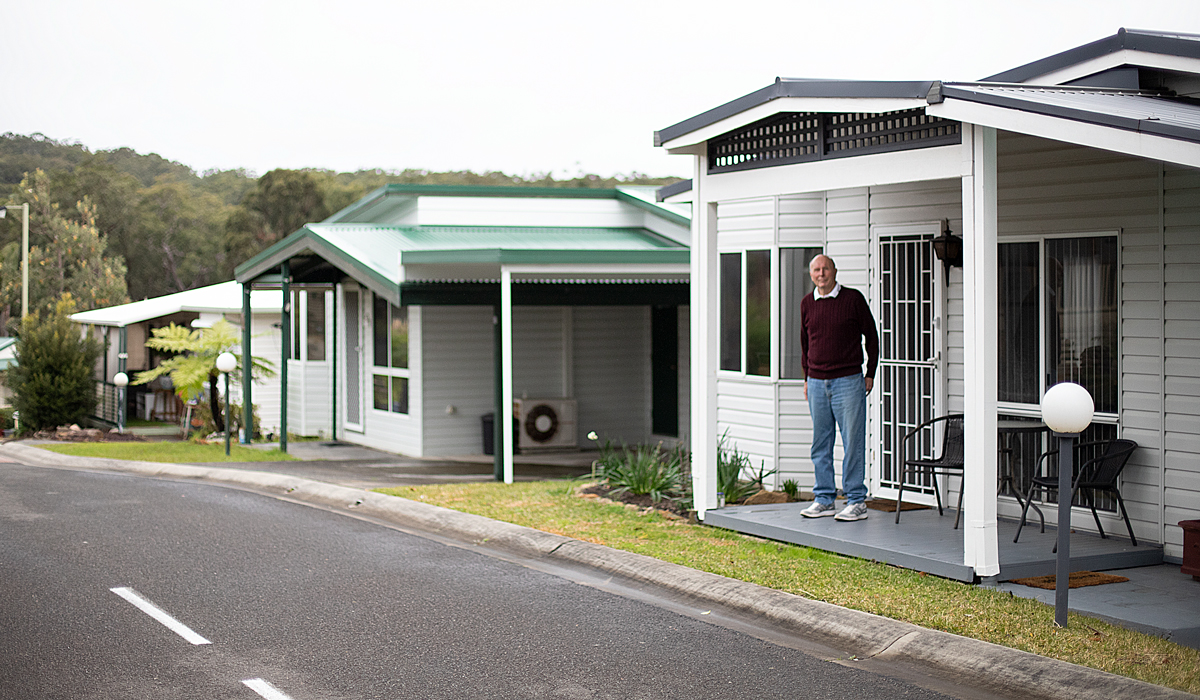Appeal afoot – fixed method site fee increases
25/11/2020

In Outasite Issue 6 (August 2020) we wrote about fixed method site fee increases and mentioned three communities where those methods were being challenged by home owners. Home owners from the Palm Lake Resorts are still awaiting a hearing before the NSW Civil and Administrative Tribunal Appeal Panel, however the Tribunal handed down the decision in Morris and Ors v Kincumber Nautical Village on 3 September.
Kincumber Nautical Village
The fixed method used by the operator of Kincumber Nautical Village (KNV) comprises multiple components and is used in many communities across the State, sometimes with a slight variation in the components. Home owners at KNV challenged the method on the basis it does not comply with the Residential (Land Lease) Communities Act 2013 (RLLC Act), that it is uncertain, and that it is an unfair term under Australian Consumer Law.
The RLLC Act provides that if site fees are to be increased by a fixed method there can be only one method and it must be either fixed amounts or a fixed calculation (for example changes in the CPI or a percentage). The method at KNV is this:
Site fees shall be increased by the sum of:-
- Any positive change in the CPI; plus
- 3.75%; plus
- A proportional share of any increase in costs incurred by the Operator since the calculation of the last site fee increase calculation for the following:-
• electricity and water (net of any amount that has been recouped from Home Owners); plus
• gas; plus
• communications; plus
• rates; plus
• any other government (Federal, State or Local) charges or taxes other than company tax. Plus - The effect of any change in the rate of GST or similar tax that is included in the site fees
Rounded up to the nearest dollar.
The decision
At the hearing the operator argued the Tribunal did not have jurisdiction to hear the dispute because S66 (7) of the RLLC Act prevents a home owner from challenging the terms of a site agreement fixing the method of future increases. The applicants argued that the Tribunal did have jurisdiction because the method in their agreements was not a fixed method. The Tribunal agreed with the home owners.
The Tribunal went on to find that the method was more than one method and not a fixed method. The Tribunal determined that the method resulting in the lowest increase should apply and that may vary from year to year. The Tribunal said:
“I am satisfied that the site agreement, by providing a calculation which includes more than one fixed method of increasing the site fees, breaches the RLLC Act. The Operator must apply only one of the fixed methods in the site agreement, being the fixed method which produces the lowest increase. The Operator must not increase the site fees by more than one fixed method.”
Uncertain term
In considering whether the term of the site agreement setting out the fixed method was uncertain under contract law the Tribunal said:
“I am satisfied that the element of the site fee increase term which requires the fees to be increased taking into account the effect of any changes in rate of GST is uncertain. There is no way of knowing what this means or how it would be calculated. The Operator says this component of the calculation does no more than pass on increased taxes and government charges, but those increases are already provided for in the proportional increases in the Operator’s costs under the third component of the calculation.
"I am not satisfied that this finding makes the whole of the term uncertain, as for the most part, this part of the term simply will not apply.”
Unfair term
In order to be able to make a finding that a term of a contract is an unfair term the Tribunal has to be satisfied about a number of factors including that the contract is a standard form contract. The Tribunal found that some terms of a site agreement are negotiable and a site agreement is therefore not a standard form contract.
However, the Tribunal went on to say “If I am wrong, and the provisions do apply, I am satisfied that the clause is an unfair term.”
The outcome is a positive one for home owners at KNV and in other communities where this or a similar method is used. However, the operator has appealed the decision and is asking the Tribunal Appeal Panel to transfer the dispute (questions of law grounds) to the Supreme Court of NSW.
This article was published in Outasite Lite 38.
